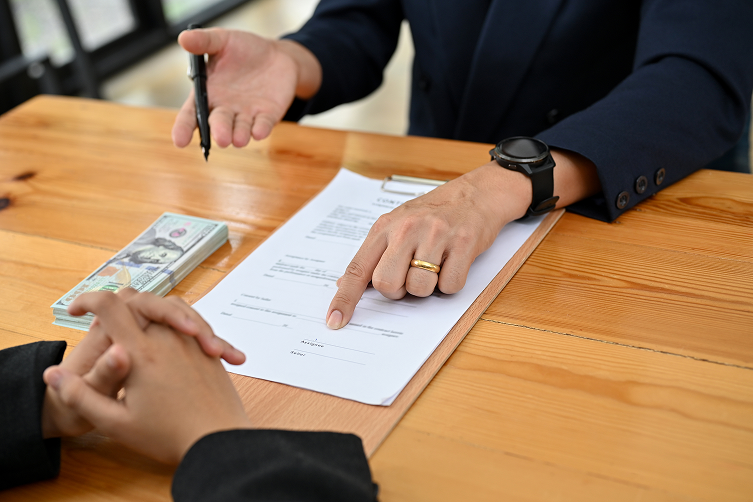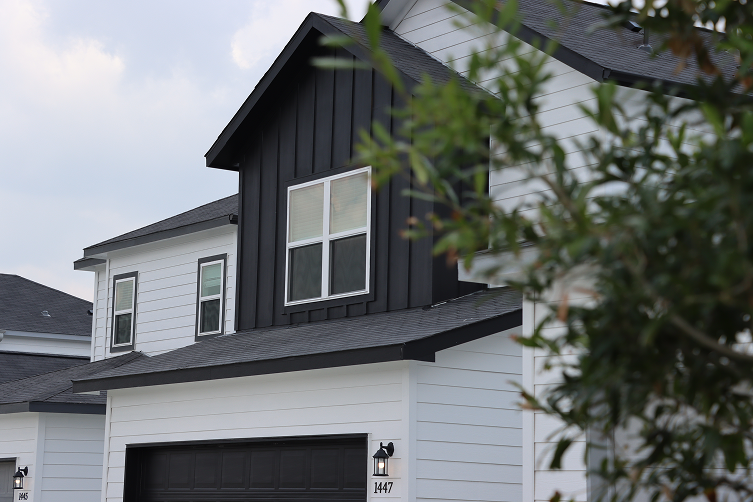Expert Advice and Insights on Renting in Houston
Tips For First Time Renters: What To Know About Security Deposits

For first-time renters, the process of signing your first security deposit might feel a little overwhelming, but don’t worry, it’s easier than it sounds! You’ll start by finding your dream place, filling out an application, and signing the lease to make it official. One thing you’ll definitely come across is the security deposit, which can be thought of as a “just-in-case” fund for your landlord, covering potential damages or missed rent. It’s usually refundable if the place is in tip-top shape when you move out, but it can definitely cause some confusion for newbies. How much should you pay? What’s it actually for? And how do you make sure you get it back? Don’t worry – we’ve got you covered!
What Is a Security Deposit?
So, what exactly is a security deposit? It’s like a safety net for your landlord, usually consisting of a sum of money that you pay upfront to cover any potential mishaps (like a spilled glass of red wine on the carpet or missed rent payments). Typically, the deposit equals about one month’s rent, but it can vary depending on the landlord or property. If everything goes smoothly and you leave the place looking as good as when you moved in, you’ll get it back when you move out. But if there’s damage or unpaid rent, that deposit might be used to cover those costs. Think of it as your ticket to peace of mind (and a clean, happy home)!
How Much Should You Expect to Pay?
So, how much should you expect to fork out for a security deposit? Well, it all depends! Factors like the type of property, its location, and even the landlord’s preferences play a role in setting the amount. For example, you might pay more for a chic downtown apartment than a cozy cottage in the suburbs. In some places, there are even legal limits on how much a landlord can charge, so be sure to check your area’s rules. Typically, the deposit equals one month’s rent, but in fancy or high-demand areas, it could be a little more. Whether you’re renting a tiny studio or a spacious house, the key is to be prepared – but don’t worry, you’ll get your money back if everything checks out!
Before Signing the Lease: Key Considerations
Before you hand over that deposit, make sure you’re on the same page as your landlord! Dive into the lease agreement and give the deposit clause a good read – understanding what’s refundable and what’s not is key to avoiding surprises later. Don’t be afraid to ask questions upfront, like, “What happens if something breaks?” or “Will I get my full deposit back?” And remember, when you do pay that deposit, always get a receipt or written confirmation. It’s like your golden ticket to proving you’re ready for your new home and ensuring that cash stays safe and sound until you move out!
Inspecting the Property Before Moving In
As you unpack your favorite throw pillows, make sure you take a good look around and document the property’s condition! Snap photos, jot down notes, and make a record of any existing damage – it’s your way of saying, “I didn’t do it!” This helps protect you from being held responsible for things you didn’t cause, like a dented wall or a wonky faucet. If you spot anything that needs fixing, don’t hesitate to request repairs before you move in. After all, you want to settle into a comfy, problem-free rental home, not one that feels like a DIY project waiting to happen!
Maintaining the Rental Property
Taking good care of your rental can really pay off when it comes time to get your deposit back! Regular maintenance is key! Keeping things clean, like wiping down appliances and being careful with adhesives, can help avoid damage that could cost you. Simple things like reporting any issues to your landlord in writing not only keeps everything documented but can prevent future disputes. Stay proactive, and your deposit will likely be a smooth return rather than a stressful negotiation! With HomeSite Residential, we provide landscaping services along with smart home technology in our homes that will help you with everyday maintenance!
When Moving Out: Getting Your Deposit Back
When it’s time to move out, your landlord will likely do a thorough inspection to see how well you’ve treated the place. Normal wear and tear like scuffed walls or faded carpets is totally expected, but anything beyond that, like big holes in the walls or broken appliances, might be considered damage. To make sure you leave on a good note (and get your full deposit back!), take a little time to clean, touch up any small repairs, and double-check everything is in tip-top shape. It’s like giving the place a goodbye hug, it’ll make your move-out a lot smoother!
What to Do if There’s a Dispute Over the Deposit
Sometimes, landlords might withhold part or all of your deposit if there’s damage beyond normal wear and tear, unpaid rent, or if the place wasn’t left in good condition. If you disagree with the charges, don’t stress, you can always negotiate with your landlord! Politely explain your side, or provide evidence (like photos) that back up your case. If things still aren’t resolved, and you feel like you’re hitting a wall, it might be time to consider legal help or mediation to sort things out fairly. No need to let a deposit dispute ruin your day, take action and get what’s rightfully yours!
Rent with HomeSite!

For a smooth rental experience and to ensure that security deposit comes back to you, the secret is simple: keep the communication lines open with your landlord and stay proactive in taking care of the place! A little regular maintenance goes a long way, and if you spot something that needs fixing, let your landlord know early. Don’t sweat it, most security deposits are returned if you’ve treated the space with care. At HomeSite Residential, we stay proactive with our community and strive to keep our neighborhood pristine!
